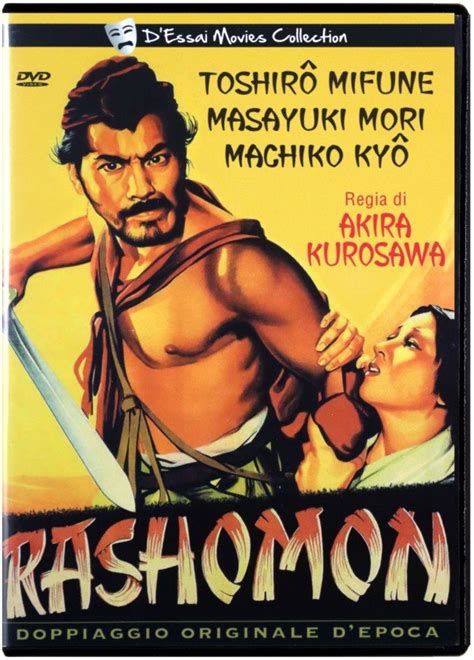Rashomon

Description:
Rashomon is a landmark 1950 Japanese drama directed by Akira Kurosawa that probes the nature of truth through the conflicting testimonies surrounding a samurai's murder and a wife's assault. In a rain-soaked, sunless forest near Kyoto, four characters—a woodcutter, a priest, a traveling broker, and the wife—relate separate versions of the same incident, each revealing bias, memory gaps, and desire. The film's revolutionary structure, stark visuals, and psychological intensity forever altered world cinema.Keywords:
Edo Period, Drama, Mystery, Jidaigeki, Psychological Thriller, HistoricalWhat does Rashomon mean?
"Rashomon" refers to a 1950 Japanese film directed by Akira Kurosawa, which explores the subjective nature of truth and reality. The title is derived from the Rashomon gate in Kyoto, where the story unfolds. The film presents multiple conflicting accounts of a crime—a woman's assault and her husband's murder—told from the perspectives of different characters. This narrative structure highlights how personal biases and perceptions shape one's understanding of events, leading to the central theme that truth is often elusive and multifaceted.
Why is it called the Rashomon effect?
The term "Rashomon effect" is derived from Akira Kurosawa's 1950 film "Rashomon," which explores the subjective nature of truth and perception. In the movie, multiple characters provide conflicting accounts of a crime, each influenced by their own biases and experiences. This leads to the realization that truth can be elusive and interpretations of events can vary widely. The Rashomon effect refers to situations where contradictory interpretations of the same event arise, highlighting the complexities of human perception and memory.
Why is Rashomon a great film?
"Rashomon," directed by Akira Kurosawa, is regarded as a great film due to its innovative narrative structure and exploration of subjective truth. It presents a single incident—the murder of a samurai—through multiple perspectives, highlighting the unreliability of memory and perception. This storytelling technique influenced countless films and introduced philosophical themes about truth and morality. Kurosawa's masterful direction, striking cinematography, and strong performances further elevate the film, making it a landmark in cinema and a profound commentary on human nature.
What is the main point in Rashomon?
The main point of "Rashomon," directed by Akira Kurosawa, is to explore the subjectivity of truth and the nature of human perception. The film presents a crime narrative through the conflicting testimonies of four characters—a bandit, a samurai's wife, the samurai (through a medium), and a woodcutter—each offering a different perspective on the same event. This structure raises questions about reality, memory, and the biases that shape our understanding of truth, ultimately suggesting that truth may be elusive and multifaceted.
Explore More Categories: